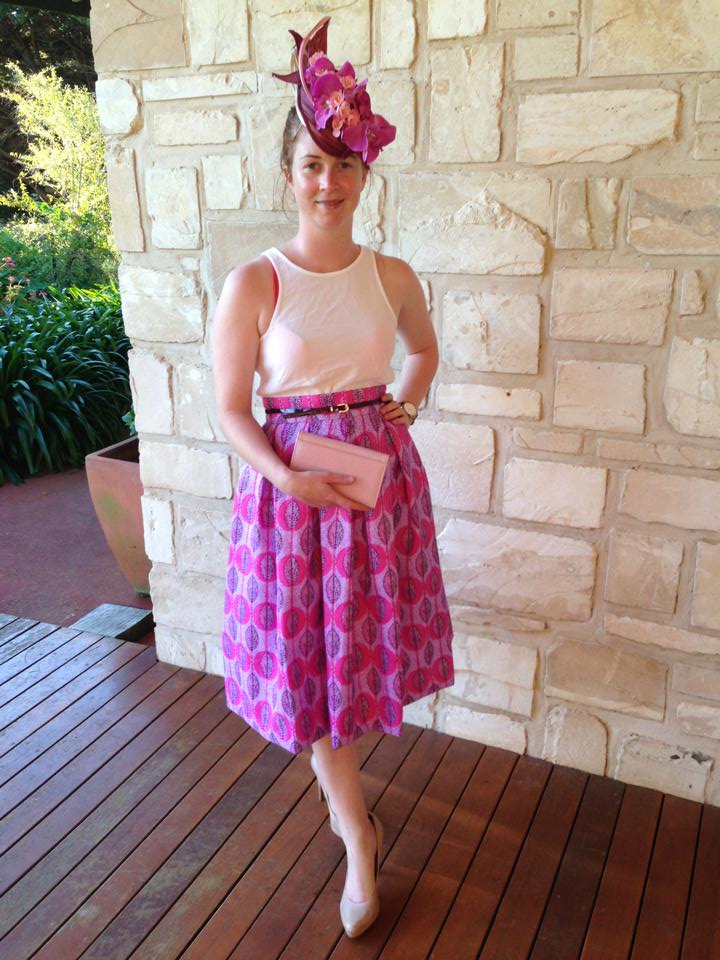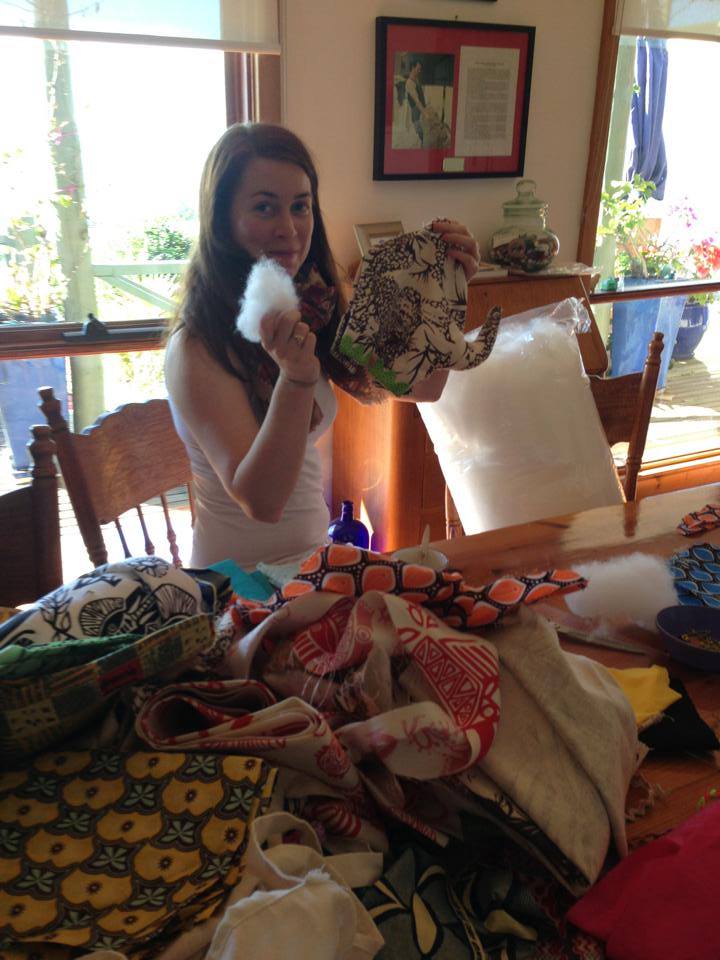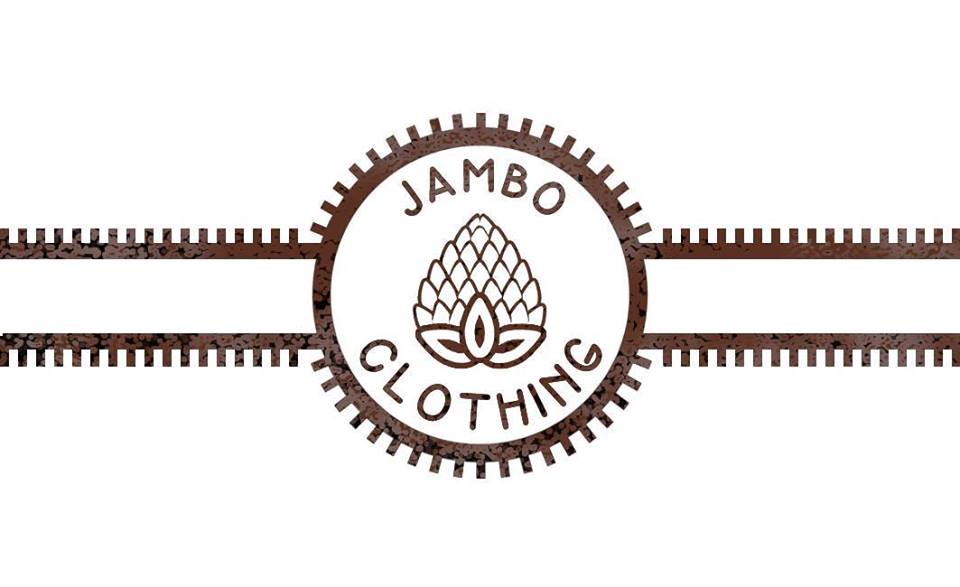Meet Sally Morris who started “Jambo”, a clothing line sourced and inspired by her volunteer work in Kenya. The money raised from Jambo goes back to the less fortunate Kenyan community. Read more about her inspirational journey:-

“I was in admiration of all the beautiful colours and patterns the local women were draped in”

“My biggest achievement has been discovering what works for me and being comfortable with my strengths”
Can you tell us a bit about your personal background?
I am 1 of 3 children who grew up on a sheep and cattle farm on Kangaroo Island, where I am currently living. I work in accounts/res/operations for a local business. I have always travelled around living in various parts of Australia and often venture overseas. I love adventure and discovering new things, ideas & people.
Why did you volunteer in Kenya & what was the outcome?
I knew I wanted to partake in a volunteer program when I left school since I was a teenager. It was just a strong feeling I had from a young age and had to fulfil it. It took me a long time to put things into place and actually bite the bullet to do it; it didn’t happen until I was 25! Career and life got in the way, until I finally decided that I was going to prioritise the opportunity over whatever was happening in my life. I also worked in childcare for a long time and this strengthened my passion to be part of a volunteer program that involved children less fortunate than ours. I’ve always been quite a sensitive person and feel things quite deeply, which is where I think my passion for involving myself in these projects came from.
And so now you have “Jambo”, a beautiful unique clothing line inspired by your volunteer experience. What does Jambo mean to you?
‘Jambo’ was really a random idea that came to life when I was in Kenya. It’s something that pieced together over time. At first I was in admiration of all the beautiful colours and patterns the local women were draped in just going about their day-to-day business, and I found myself taking so many photos of them. I’ve always been into unique fashion and always considered the way I dress as an outlet to express my creative side. I imagined wearing the fabrics and turning them into something unique that I could wear back home. So I sourced a local tailor to make me a couple of skirts and was very pleased with the outcome. After this I wore these items to one of the local resource centres (Matumbu) where I desperately tried to figure out how I could slot in and contribute in my own way. I didn’t have great computer skills nor had I had any experience teaching, so it was difficult to feel useful. I had no idea how I was going to transfer my life/work skill to benefit this centre, until I popped into the sewing room to have a look at one of the projects the centre was running. It ran regular sewing classes for single mums with new babies where they learned to make reusable sanitary napkins and women’s traditional apparel to help keep them afloat. When I asked Walter (the founder of Matumbu) to explain the project to me he said that the workers were not receiving enough work regardless of the opportunities he was providing them. I noticed they were only making ‘traditional’ clothing and many people in the community could not afford to splurge on fashion. This is the moment I instantly realised where my skills could be utilised!! I could teach them very simple ‘westernised’ patterns that would appeal more to passing volunteers and tourists (people who could afford to splurge on a few outfits) and everything stemmed from there. I began to source beautiful fabrics from the local markets and worked with them on some basic tops and skirts. I paid the tailors to make a huge amount of women’s apparel that I could take back home and sell at my local market, as this was a great way for me to be able to give them money but also give them self-sufficient techniques and ideas – as handouts are often not helpful in small communities like this. The name ‘Jambo’ came to me later; ‘Jambo’ is “hello” in Swahili (the national language) and the one word I was actually able to remember, and so it stuck. Later on I contributed a lot of my fundraising money to Matumbu to invest in some self-sufficient crops. I knew the profit from the clothing could be spread a bit further and also dedicated the profits to another local organisation ‘Odede Health Centre’. The last donation I sent paid for decent bedding for the entire hospital!! Eventually I would like to sell enough apparel to donate a woman’s children’s ward with adequate maternity facilities.
Amazing! So why is helping people so important to you, especially those less fortunate?
As I previously stated, I have always been a sensitive soul and felt things quite deeply and I think when you have suffered and endured hardships in your life, you learn to develop a strong sense of empathy and compassion for others. Going through tough situations helps you to understand other people’s struggles. I don’t think what I do is completely selfless, as it still stems from an emotional desire that I have within me – something I have felt the need to fulfil. It is just the right path for me personally and I am just following my gut at the end of the day.
What is one very valuable lesson you have learned on your own personal journey that you can share?
The person I was when I got off the plain in Kisumu is not the same person that boarded the plane back to Australia, I can tell you that much! I learned that nothing in life is as clear-cut as it seems and everything is relative to your perspective and surroundings. There are so many different ways of living life and you will never find out how to do it correctly. The way I viewed Kenya and its people was so different by the end of my journey there, because when I first got there I had come straight from a western environment. Once I learned to clear everything I thought I knew from my life back home, I then saw everything in a very different way. My biggest lesson came from the old saying “someone somewhere is always less fortunate”. This is true, however don’t believe this should make you feel guilty or give up all of the wonderful things you are lucky to have, instead you should appreciate it every day! I also don’t think anyone should ever feel guilty when they are upset over ‘first world problems’ because everything is relative – you reflect your surroundings and you feel what you feel. Just learn to give, and be grateful for and enjoy positives – that’s all.
Agreed – gratitude is powerful! What are some of your greatest personal achievements?
Well school was definitely not one of them, as I was never a high achiever academically and was a bit of a misfit. My biggest achievement has been discovering what works for me and being comfortable with my strengths, regardless of the expectations from my surroundings – as such expectations lie solely on where I am situated on a map! Also learning I have a useful place in this world and that my difference is my biggest contribution, which has been my greatest achievement.
Have you always been healthy – and what does health mean to you?
Not always, as I have struggled from depression and anxiety for a large chunk of my life. However I have learned to turn this into a strength instead of a weakness. I have always been a conscious eater and have developed very healthy eating patterns.
What are your personal views on alternative natural therapies, such as hypnotherapy to make beneficial changes in ones life?
I think people should be less skeptical of anything that has a positive impact or helps someone to feel happier within themselves, whether medically proven or not. It is whatever suits each individual; no-one has the right to question that choice.
What are your ideal goals?
To keep changing and growing, and to help others to do the same!
Do you have any inspirations?
Quite cliché, but Nelson Mandela is a huge inspiration to me. He doesn’t just represent peace and acceptance, he is also living proof that everyone has the ability to change. He is proof that you don’t have to let misfortune in your own life dictate the person you become and forgiveness is a conscious decision. He showed us all that we do have power over our own minds.
Another person who I find inspiring is Aung San Suu Kyi. She is a strong representation of the powerful strength and will of a woman; a perfect example of how a woman should never be underestimated nor undermined.
Thank you Sally! Is there anything else you would like to add?
Thanks for having me : )

“I contributed a lot of my fundraising money to Matumbu to invest in some self-sufficient crops… [and] dedicated the profits to another local organisation ‘Odede Health Centre’. The last donation I sent paid for decent bedding for the entire hospital!!”
